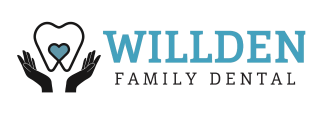Preventative Dentistry
Preventative Dentistry
Comprehensive Exam
During your initial visit, a comprehensive evaluation will be completed. We will review your medical and dental history and then address your dental concerns and goals. We will take any necessary radiographs, photographs, or diagnostic aids to thoroughly evaluate your oral health.
Dr. Willden will check your teeth for cavities, evaluate the integrity of existing dental work, examine your gums, check your bite, and perform an oral cancer screening. In most cases, we are able to clean your teeth the same day. In some cases, more extensive gum therapy is indicated. We will review your treatment needs and options and then present you with a treatment plan that includes a phased treatment schedule with your cost estimate.
If you have anxiety related to dental treatment, we have options available for you (ask us for more information).
Our goal is that you make an informed decision regarding your dental care.
*In some cases, you may be visiting us for a focused dental urgency. In this case, we will complete a tooth-specific exam and aim to treat your concern on the same day. Following this appointment, we recommend a comprehensive evaluation to help prevent future dental urgencies and maintain your oral health.
Digital Dental X-rays
- Panoramic
- Bitewings
- Periapical
Dental radiographs are a diagnostic tool to aid your dentist in detecting conditions and disease not visible during the clinical exam. Radiographs allow us to “see” between your teeth and below your gums. We can identify cavities, evaluate gum health, and check for pathology. As a benefit to you, the digital radiograph provides nearly 80% less radiation than with standard x-rays.
How often we take radiographs depends on your present oral health, your age, your risk for disease, and any signs and symptoms of oral disease. Your dentist will review your records and your mouth to determine your need.
Intra-oral camera
The intra oral camera is a diagnostic tool that gives us the ability to
document your dental findings and plan the best care for you.
With up-close, detailed pictures of your teeth, we can also show
you what we see and help you understand your treatment needs.
Cleanings
Routine (adult and child)
A regular dental cleaning, called “prophylaxis” by dental professionals, is what most people think of when they hear of a dental check-up. Prophylaxis involves removing plaque, calculus, and stains from your teeth. Plaque is an opaque, sticky substance that builds up on teeth as a byproduct of bacteria processing the food you eat. Calculus, also known as “tartar,” occurs when plaque hardens. In the absence of tissue and bone loss, this condition is called “gingivitis.” Our dental hygienist uses specialized cleaning instruments and devices, including an Ultrasonic scaler, to remove these deposits. This cleaning occurs on the visible part of the tooth, known as the crown. Cleaning these deposits from your teeth and teaching you how to prevent these deposits is important for cavity and gum disease prevention.
Regular dental cleanings are recommended for patients who have generally good oral health and do not suffer from bone loss or gum problems such as bleeding, recession, or infection. Routine cleanings are usually recommended two times per year but if you are at higher risk for dental disease, more frequent cleanings may be advised.
Periodontal Disease (Gum Disease) Management
Advanced or untreated gum disease is called “Periodontitis.” Chronic periodontitis affects nearly half of adults over 30 in the United States. As tartar accumulates below the gumline, it harbors bacteria and toxins that attack the tissue and bone around teeth. Symptoms of active periodontitis include bleeding gums, bad breath, teeth that look longer and discolored due to root exposure, and swollen or red gums. Because the disease advances silently and often without pain, routine care is key. If unchecked, the result could be tooth loss.
Scaling and Root planning or a “deep cleaning” is an advanced cleaning procedure that involves removing tartar, bacteria, and toxic deposits from the root of a tooth, all the way down to where the gum and bone meet. We may also employ soft tissue laser therapy and/or local antimicrobial therapy to reduce harmful bacteria levels between your teeth and gums. In some cases of aggressive periodontitis or advanced tissue loss, surgical periodontal therapy may be needed.
Following deep cleaning, subsequent cleanings are known as “periodontal maintenance.” It is important to maintain a routine cleaning schedule so that your tissues remain stable and your risk for tooth loss is reduced. Cleaning frequency depends upon your risk for disease. Many of our successful periodontal therapy patients are seen every 3 or 4 months.
Fluoride & Sensitivity Treatments
Fluoride is often called nature’s cavity fighter and for good reason.
Fluoride is a naturally-occurring mineral that helps prevent cavities in children and adults by making the outer surface of your teeth (enamel) more resistant to the acid attacks that cause tooth decay. If you are high risk for getting cavities, your dentist can apply fluoride varnish directly to your teeth during your dental visit. Prescription- strength fluoride toothpaste may also be recommended.
Sealants
It’s not always easy to clean every nook and cranny of your teeth –
especially those back teeth you use to chew (called molars). Molars are rough, uneven, and a favorite place for food and cavity-causing bacteria to hide.
A sealant is a thin, protective coating that adheres to the chewing surface of your teeth. They’re no substitute for brushing and flossing, but sealants can reduce your risk for getting cavities.
Children and adults can benefit from sealants, but the earlier you get them, the better. Your first molars appear around age 6, and second molars around age 12. Sealing these teeth as soon as they come in can keep them cavity-free from the start.
Night Guards / Occlusal Guards / Splints
A night guard/occlusal guard/splint fits over your teeth in order to protect them from the damages common with nightly clenching and grinding or an unbalanced bite. They are similar to mouth guards worn during sports but are made of a thinner, smoother, firmer plastic. Occlusal guards are customized to each patient in order to fit them securely and comfortably. This allows for a better night’s sleep, while also offering the most protection against tooth fracture and chipping. With a more balanced bite and relaxed jaw muscles, most patients will experience less jaw pain and headaches.
Sports Mouthguards
Mouth guards are an essential piece of equipment in contact sports.
They should be worn by all athletes of all ages who participate in
sports. Wearing a mouth guard helps prevent against damage to
your teeth and jaw and also helps prevent injuries such as
lacerations to your cheeks, tongue, and lips. While mouth guards
are available in most sporting goods stores, our custom fabricated
guards offer a better level of protection. Custom fabricated guards,
fit better, are more comfortable, allow easier breathing, and easier
communication.
Emergency Visits
If you have an emergency after regularly scheduled hours, please call us at (970) 249-2533.
Please leave a message and we will work with you to
find a solution.
Walk-ins
Our office welcomes walk-ins, but we encourage pre-arranged
appointments to ensure optimal timeliness and attention. We understand that emergencies happen and with advanced notice, we can usually address your needs on the same day.
Please contact our office to schedule: (970) 249-2533

New Patients Are Always Welcome!
Please call us if you have any questions or
would like to schedule your appointment.
We look forward to meeting you!
(970) 249-2533
Willden Family Dental204 S. Uncompahgre Avenue OFFICE HOURS |
|
| Monday | By appointment only |
| Tuesday | 8:00 AM to 5:00 PM |
| Wednesday | 8:00 AM to 2:00 PM |
| Thursday | 8:00 AM to 5:00 PM |
| Friday | 8:00 AM to 5:00 PM |
